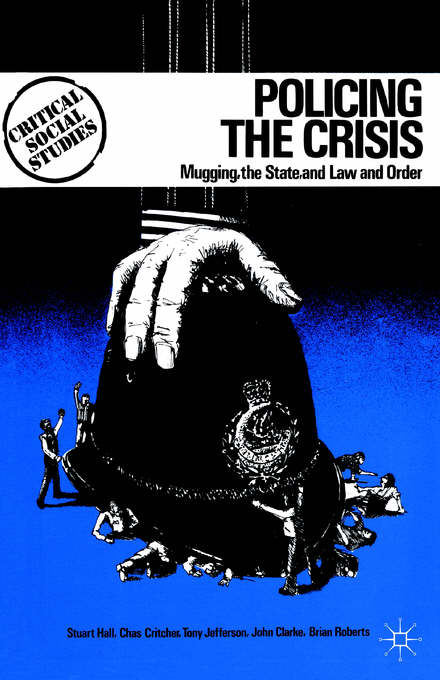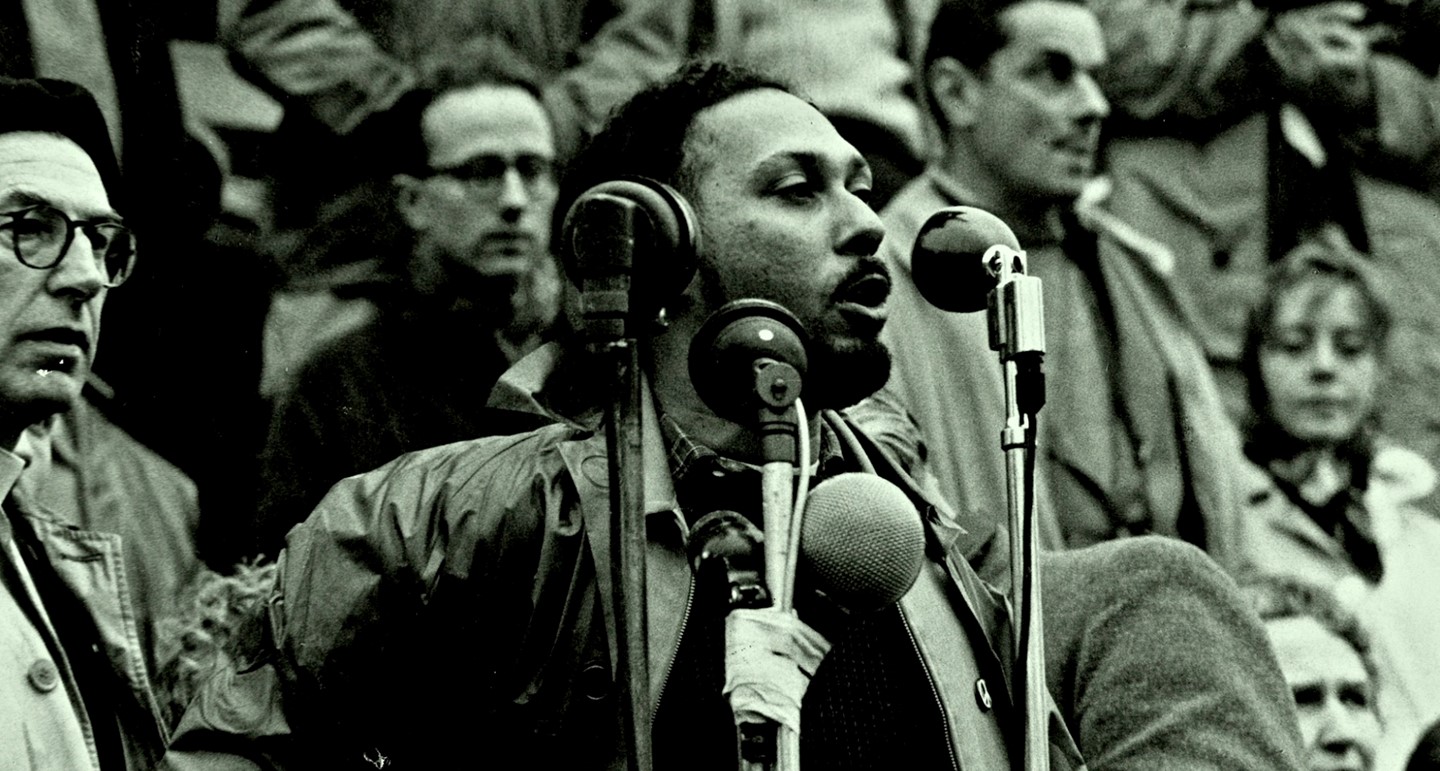"Policing the Crisis": Race and Radical Sociology
By the middle of the twentieth century, a radical critique of both traditional sociological research and society emerged, centring on the work of Stuart Hall (1932-2014) and others at the Birmingham Centre for Contemporary Cultural Studies (or CCCS). Hall and his colleagues were increasingly drawn to issues of racial inequality and structural racism as well as to youth culture and its place within networks of radicalism and consumption.
Reading
Chas Critcher, 'Actions not words: neighbourhood activism and cultural studies', in Kieran Connell and Matthew Hilton (eds), Cultural Studies 50 Years On: history, practice and politics(London: Rowman & Littlefield, 2016), pp. 247-256 [e-book]
Kieran Connell and Matthew Hilton, 'The working practices of Birmingham's Centre for Contemporary Cultural Studies', Social History, 40:3 (2015), pp. 287-311 [link]
Kieran Connell, 'Policing the Crisis 35 years on', Contemporary British History, 29:2 (2015), pp. 273-283 [link]
Jessica White, 'Child-centred matriarch or mother among other things? Race and the construction of working-class motherhood in late twentieth-century Britain', Twentieth Century British History, 33:4 (2022), pp. 498-521 [link]
CCCS publications / reflections on the CCCS
CCCS [Stuart Hall et al], Policing the Crisis: mugging, the state and law and order (Basingstoke: Palgrave, 2013 [originally published 1978]) [second edition featuring a new preface and afterword from Hall] [e-book link]
Dick Hebdige, Subculture: the meaning of style (London: Routledge, 1979) [e-book link]
CCCS, The Empire Strikes Back: race and racism in 1970s Britain (Birmingham: CCCS, 1982) [e-book 2005]
Most of these are available as Library e-books or articles. I have tried to provide links; though please be aware that you may need to complete a Warwick sign-in in order to benefit from the Library's e-subscription to these resources.
Stuart Hall and Les Back, 'At home and not at home: Stuart Hall in conversation with Les
Back', Cultural Studies, 23:4 (2009), pp. 670-671 [link]
Reflections on Hoggart's time at Birmingham by Matthew Hilton and Kieran Connell.
Seminar questions
- What made the research undertaken by Stuart Hall and others a departure from earlier social-scientific endeavours in Britain? How should we fit it within the context of other approaches and ideas explored on this module?
- What is the place of the media in these analyses?
- How did race and youth intersect in this work? Do you think that the connections made by the researchers are necessarily the right ones?
- How does the focus on race and youth interact with analyses of class? Do they highlight the weaknesses of class as a category of analysis?
- How far was this research negotiating a boundary between research and activism, and how successful were its practitioners at doing so?
- Activity: Choose one of the CCCS publications above and come prepared to offer a summary and analysis of it. (Hebdige’s Subcultures focuses more on youth culture, the other two book-length studies examine race and racism.)
Given the large quantity of material on this topic, I have created a separate page for the New Society dossier.
Further reading and resources
Sundari Anitha, Ruth Pearson and Linda McDowell, 'Striking lives: multiple narratives of South Asian women's employment, identity and protest in the UK', Ethnicities, 12:6 (2012), pp. 754-775
Rosalind Brunt, '"Reading for tone": searching for method and meaning', in Kieran Connell and Matthew Hilton (eds), Cultural Studies 50 Years On: history, practice and politics (London: Rowman & Littlefield, 2016), pp. 91-100 [e-book]
Beverley Bryan, Stella Dadzie and Suzanne Scafe, The Heart of the Race: black women's lives in Britain (London: Virago, 1985) [2018 second edition also available in the Library]
Elizabeth Buettner, '"Going for an Indian": South Asian restaurants and the limits of multiculturalism in Britain', The Journal of Modern History, 80:4 (2008), pp. 865-901
Kieran Connell, 'Photographing Handsworth: photography, meaning and identity in a British inner city', Patterns of Prejudice, 46:2 (2012), pp. 129-153
Jon Garland, Keith Gildart, Anna Gough-Yates, Paul Hodkinson, Bill Osgerby, Lucy Robinson, John Street, Pete Webb and Matthew Worley, 'Youth culture, popular music and end of "consensus" in post-war Britain', Contemporary British History, 26:3 (2012), pp. 265-271 [introduction to a wider edited collection on this theme]
Paul Gilroy, There Ain't No Black in the Union Jack: the cultural politics of race and nation (1987 - 2002 Routledge Classic edition available as an e-book from Warwick Library)
Matthew Worley, ‘Shot by Both Sides: Punk, Politics and the End of “Consensus”’, Contemporary British History, 26, 3 (2012), pp. 333-354
Stuart Hall interviewed on Radio 3's Night Waves/Free Thinking programme (originally broadcast 2004, retransmitted in 2014 to mark Hall's death). He can also be heard as a castaway on Radio 4's Desert Island Discs (18 February 2000).


Top: Cover of Stuart Hall et al's Policing the Crisis: mugging, the state and law and order (1978)
Bottom: Stuart Hall addresses a demonstration.
